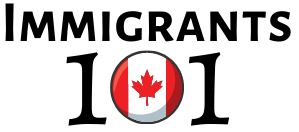Things you Need to do After Landing as International Student in Canada

Table of Contents
Getting an approval for a student visa was one of the happiest days in my life. Being an international student could be overwhelming for some as there are a number of things that need to be done when you arrive in Canada. In this post, I will be discussing things you need to do after landing as international student in Canada
1. Apply for Your SIN Card
Apply for your Social Insurance Number (SIN) as soon as you arrive in Canada. Without this number, you cannot get a job or apply for any government assistance or credit. In fact, without it, you are virtually a person without an identity in Canada. There is no cost for you to get your SIN.
2. Set up a Bank Account
Another priority in your first few days will be dealing with your finances. Select a bank or a credit union near your home or work and open at least one bank account right away. To open an account, you will need your landed immigrant papers and any other identification you have to prove your place of residence.
Banks provide basic savings accounts and chequing accounts. You may need a chequing account in particular because many employers pay by direct deposit right into your account. As an international student most banks will offer you a $500 credit card. Please accept this offer as it will you to build your credit history in Canada
3. Get a SIM card
There are three major service providers in Canada- Bell, Rogers and Telus. These are called MVNOs or mobile virtual network operators. Small providers or MVNOs use the same networks as the Big Three providers. They lease the portion of the network and then focus on specific regions. I would recommend getting a plan from small providers as they are generally budget friendly for students.
I have been a Fido customer since I arrived in Canada. Coverage for Fido is decent and I never had any issue. If you are interested in getting a SIM from Fido check out my referral link: referme.to/yadwindersinghd-1 If you sign up with my link, we’ll both get a $50 bill credit. (Fido terms and conditions may apply)
4. Resume and applying for jobs
Once you have settled down. Next, it is a good idea to apply for jobs. I have spoken to my cousins who came as international students, most of them never had a basic resume to apply for jobs. I wrote a post in the past where I provided a sample resume and shared tips on creating your resume. Please refer to this link: http://immigrants101.com/free-resume-template-for-international-students/
To find your first job in Canada, following points would be helpful:-
- Create an account Indeed.ca and apply for warehouse jobs
- Apply for jobs in food restaurants – Tim Hortons, McDonald’s, KFC
- Register yourself with recruitment agencies. If you are in Greater Toronto Area then Randstad.ca, www.prodigypersonnel.com
Conclusion
Being an international student, you might have a challenging time initially but with hardwork and dedication always pays off in the long run. Please feel free to comment if I missed anything. I hope you will find the “Things you Need to do After Landing as an International Student in Canada” post useful. Take care!















